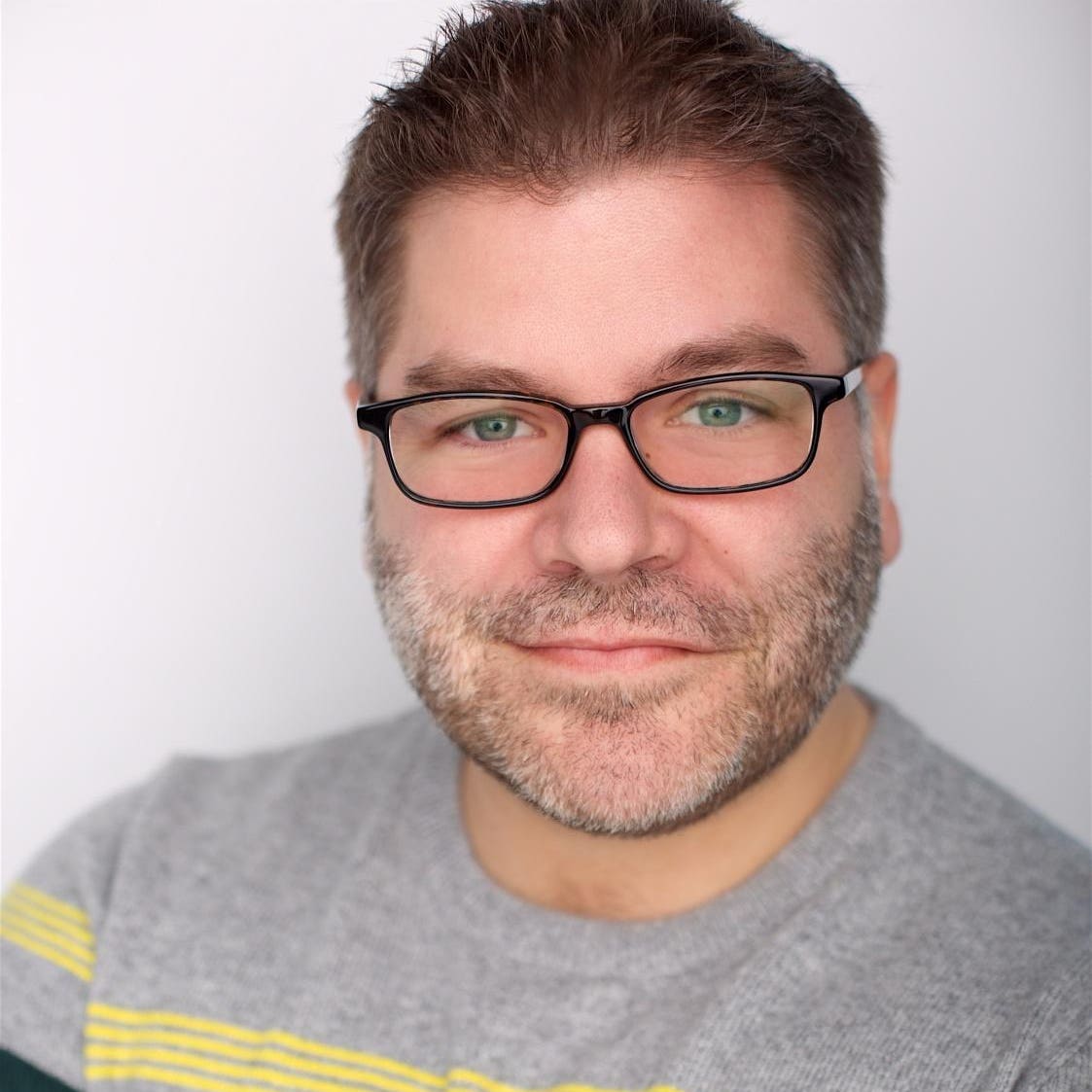Whatever you consider your most embarrassing failure, I promise that podcasting mogul Patrick Hinds can top it. He’s the co-creator and host (with Gillian Pensavalle) of True Crime Obsessed, named one of the “20 Best Podcasts Ever” with over 200 million downloads, and was the first podcast to play a live show on Broadway. Yet his colorful failures are enough to make even the most grizzled entrepreneur blush.
He eschewed dreams of a musical theater career after getting cast as the back half of a cow behind a dangerously flatulent partner. He opened and shut a home daycare within a week after witnessing, among other things, one of his toddler charges pull down his shorts, bend over, squat and, well, you know, onto a tree in front of their Harlem apartment. And the list goes on.
But the difference between Patrick Hinds and many other big stars is that he doesn’t hide his bumps in the road. In fact, he’s written them down in his new book, Failure Is Not NOT An Option: How the Chubby Gay Son of a Jesus-Obsessed Lesbian Found Love, Family, and Podcast Success…and a Bunch of Other Stuff. And as you’ll see, his candor is one of the driving forces behind his rise to stardom.
“One of the hardest lessons is learning to laugh at yourself.” When we spoke recently, Hinds told me that was the first lesson driving his success. “I look at some of the stories I shared in the book, and I think that humor has saved me. I grew up a chubby, gay poor kid. I’m a big, clumsy person, and I’m loud. My mom would call me a bull in a China shop, and my teachers always had to hush me. I was embarrassed about a lot of that. But now, I’ve taken 12 embarrassing stories, shared them publicly, and I find the humor in them. When you can laugh at your mistakes, you can learn from them. But if you can’t laugh, you can’t take anything away from them.”
Not only does laughing at your mistakes allow you to process and learn from them, but you also take the power away from anyone who might have lorded those mistakes over you. How can someone mock your mistakes when you’re in on the joke and leading the laughter? Plus, as Hinds tells me, “Failure is great because if you fail at something, you’ve tried. And if you’ve tried, then you’ve shown up for yourself.”
You don’t have to turn your mistakes into a bestselling book, but reflecting on them and, yes, writing or journaling them is remarkably cathartic. Hinds tells me, “I would sit in my podcasting studio, without windows, closed off from the world, and I would just sit and write these stories. And sometimes I would cry, and sometimes I would laugh. But when I read back through them all, I would find myself speaking out loud to my younger self, saying, ‘wow, I’m proud of you and how you got through that.'” And when you do write down your own stories, take a lesson from his book: “I wrote it chronologically, I didn’t skip around, so I was able to relive my own growth.”
For those in the early stages of their career, try some journaling. Hinds wishes he had done much more of it twenty years ago. “It doesn’t have to be extensive,” he says, “but at the end of the day, write five sentences about what you did that day. I promise, it might not seem like it right now, but you will want to remember your story.”
And, of course, you’ve got to go out into the world and make your own mistakes and stories. “It’s equally important to have a life and friends and build your life that way in your formative years, but you can’t lose sight of where you want to go. You need to have a sense of where you want to be years from now and work towards it. I’d work my bartending job till late, go out for a couple of drinks after work, but still be up at eight in the morning working on whatever the creative thing was that I eventually wanted to be my career.”
Learning to laugh at yourself, not hiding from your mistakes, and giving yourself props for fighting through them are all critical. But, as Hinds tells me, “there’s just no substitute for working hard. You just have to do it. Whatever the job is, do it well, care about it, invest in yourself, invest in the job. That’s something that a lot of people don’t do, and it’s important.”
Finally, learn, grow, and expand your mind. It’s been a key part of Hinds’ success, and research (like this study) shows that people who are always learning new things at work are ten times more likely to feel inspired to give their best effort. “I’m so lucky that I’m constantly learning. I’m fascinated by podcasting. It’s not just the storytelling; it’s learning audio, editing, and marketing. I became really obsessed with how our podcast sounded, how to build an audience one person at a time, and really, every aspect of this.”
Read the full article here





